
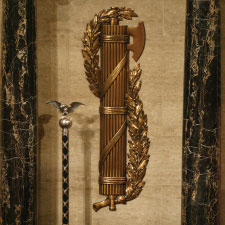
Bronze Fasces
Two bronze fasces—a symbol of power since the times of the Ancient Romans—hang behind the rostrum. In the Chamber, the fasces are symbols of the authority of the U.S. House of Representatives.

U.S. Flag
The U.S. Flag has traditionally been located behind the Speaker’s chair on the rostrum. The flag is furnished by the Clerk of the House.

Bill Hopper
Representatives introduce bills by placing them in the bill hopper attached to the side of the clerk’s desk.
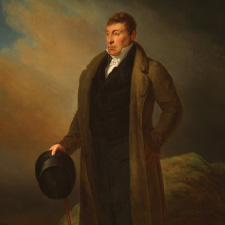
Portrait of Marquis de Lafayette
The Marquis de Lafayette was a hero of the American Revolution and a close friend of George Washington’s.

Leadership Tables
From these tables, Representatives from each party, called floor managers, control the flow of debate on bills before the House
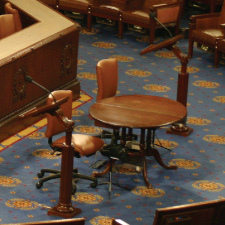
Lecterns
These lecterns are used by Members addressing the House.
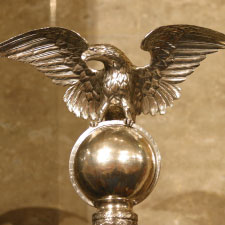
Mace
The mace, a symbol of power in ancient Rome, is used by the House Sergeant at Arms to bring the Chamber to order and to end disagreements.
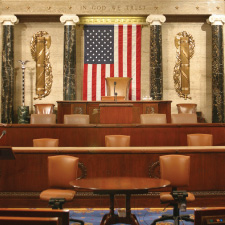
Rostrum
The Speaker of the House presides from atop the rostrum, with the assistance of the Parliamentarian; lower tiers of the rostrum provide space for staff who assist with Floor operations.
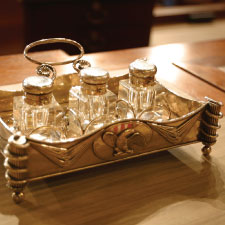
Coin Silver Inkstand
The coin silver inkstand is the oldest surviving relic of the U.S. House of Representatives.
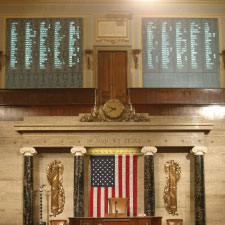
Voting Boards
Votes are registered on these panels at the front of the Chamber. When Members are not voting, the panels are disguised as decorative tapestry.

Voting Machine
Members vote using the electronic voting machine by placing their voting cards in the slot and selecting yeah, nay, or present.

Portrait of George Washington
America’s most beloved hero is memorialized throughout the Capitol. The House commissioned John Vanderlyn to paint Washington’s likeness expressly for the Chamber.

The Well
Members use this area, right in front of the rostrum, to address the House.
